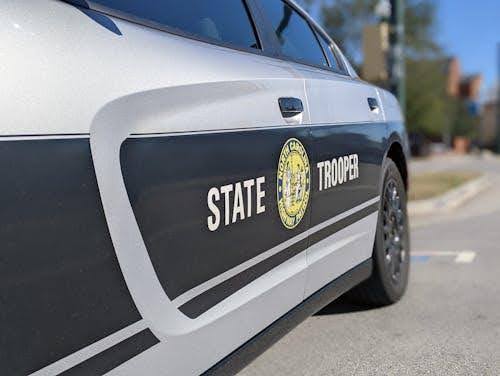The Other Side of Law Enforcement: The Good, the Bad, and the Ugly
Law enforcement is constantly scrutinized by the public. The badge represents duty, honor, and sacrifice, yet the individuals behind it are as human as the rest of us.
Michael L. Gayer’s A Journey: An Experience of a Lifetime offers a personal and unfiltered look at life behind the badge, exposing the triumphs, struggles, and moral complexities of serving as a state trooper.
In this blog, we explore the dualities of law enforcement: the good, the bad, and the downright ugly.
The Good: The Pride in Serving and Protecting
Many officers, like Gayer, are drawn to the profession by a deep sense of duty and a genuine desire to serve and protect their communities. For many, wearing the badge is more than just a job—it is a calling, a lifelong commitment to upholding the law and ensuring the safety of others.
The decision to enter law enforcement often stems from personal experiences, admiration for role models in uniform, or a strong belief in justice and the greater good. Despite the risks, these individuals choose to dedicate their lives to something bigger than themselves, knowing full well the challenges that come with it.
The good side of policing is often found in the countless moments that never make the headlines—the silent victories that go unnoticed by the general public. It’s the officer who saves a life in the nick of time, the trooper who talks someone out of self-harm on a lonely bridge in the middle of the night, or the detective who tirelessly works a case, bringing long-awaited justice to grieving families.
These moments of heroism, compassion, and dedication define the heart of law enforcement and reflect the true purpose of those who serve. Yet, these stories are often overshadowed by controversy and negative press, leaving the public unaware of the daily sacrifices officers make to protect their communities.
Gayer vividly describes the rush of adrenaline during a high-speed chase, the intense focus required in split-second decision-making, and the deep sense of fulfillment that comes with solving a complex case. He recounts the pride of knowing that his actions directly contributed to making his community a safer place—whether by apprehending a dangerous criminal, assisting victims in their darkest moments, or simply being a reassuring presence in times of crisis.
These experiences, though often overlooked, are at the very core of why so many individuals feel called to law enforcement in the first place. Despite the many hardships and the weight of responsibility, the ability to make a real, tangible difference in people’s lives remains one of the most rewarding aspects of the profession.
The Bad: The Emotional and Psychological Toll
While law enforcement offers moments of pride, it also demands immense personal sacrifice. Officers frequently witness the worst aspects of humanity: violent crime scenes, fatal accidents, and heartbreaking tragedies. These experiences leave deep scars, often leading to emotional detachment, PTSD, and even substance abuse.
In A Journey, Gayer recounts incidents that haunted him long after he took off the uniform. His encounter with gruesome crashes and witnessing death up close left a heavy emotional burden, which affected his family, relationships, and mental health.
Moreover, officers have to navigate the rigid and political nature of police departments. Internal corruption, bureaucracy, and lack of support from leadership can disillusion even the most dedicated law enforcer. Many officers start their careers with a clear sense of justice, only to realize that the system they serve is imperfect.
The Ugly: The Harsh Reality of Public Perception
In today’s media-dominant landscape, every mistake is magnified, every bad cop’s actions are used to judge the entire profession, and public trust is at an all-time low. While accountability is necessary, Gayer emphasizes how this widespread mistrust makes a difficult job even harder.
Recruitment numbers are declining because fewer people want to take on the responsibility and risks of the badge. Officers work long hours, face public hostility, and are often portrayed as villains, regardless of their actions. Gayer sheds light on officers’ frustration when vilified despite the countless selfless acts they perform every day.
The Balance: A Job Like No Other
Gayer is not defending bad policing or condemning those who criticize the system. Instead, in his book, he honestly portrays what it means to be a police officer.
The truth about law enforcement is complex. It is a profession where good and evil often collide, moments of heroism can be overshadowed by human error, and those who protect others need protection themselves. A Journey serves as a reminder that behind every badge is a person—flawed, brave, and burdened with responsibility.
As we continue to discuss and reform law enforcement, it is crucial to recognize its dualities. There is no simple answer to its challenges, but understanding the good, the bad, and the ugly can bring us closer to meaningful change.Want to know more about the life that Gayer lived? Read A Journey: An Experience of a Lifetime now.












Post Comment